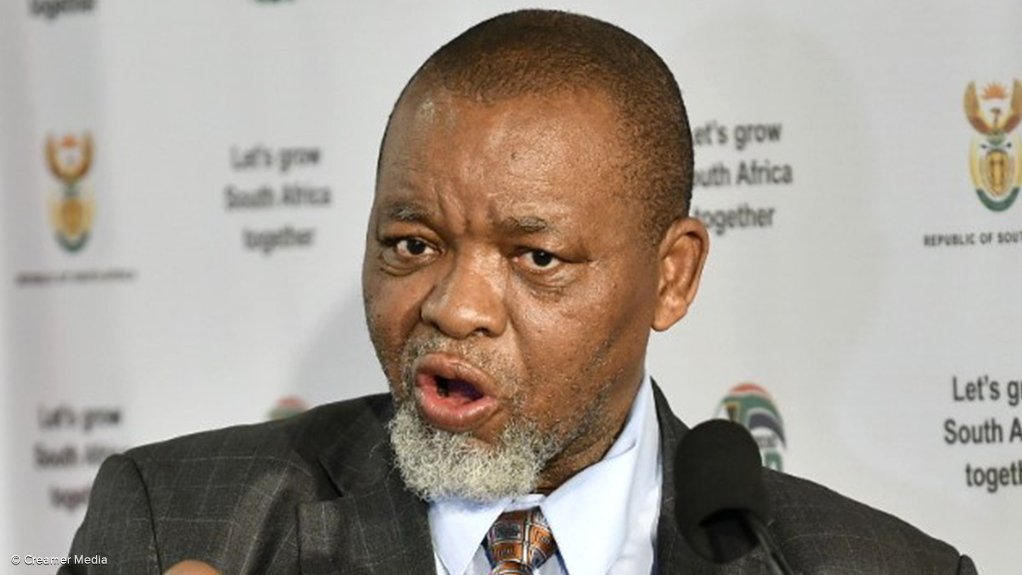Mineral Resources and Energy Minister Gwede Mantashe still believes loadshedding could be over by the end of the year if emergency power procurement through Karpowership, along with other measures, are taken "seriously".
The minister said in an interview with Talk Radio 702's Clement Manyathela on Tuesday morning that by rejecting Karpowership, "Eskom must not pretend to be having electricity when it does not".
"Loadshedding can be attended to effectively and be reduced - almost eliminated if we focus on the right things," Mantashe said, explaining that these measures involve re-looking at Karpowership, improving the energy availability factor of stations, and importing energy from neighbouring countries.
Earlier this year, in an interview with eNCA, Mantashe said that loadshedding could be addressed in six to 12 months. At Davos this year, Finance Minister Enoch Godongwana similarly said it would take 12 to 18 months to say "loadshedding is a thing of the past".
After his comments on Tuesday, Manyathela confronted Mantashe with comments by Electricity Minister Kgosientsho Ramokgopa that ending loadshedding soon was not technically possible.
"He has a responsibility now, I won't venture into having an argument with him [Ramokgopa]. He works there [with Eskom] now. Technically, it is possible, but he must have insight into other things," Mantashe responded.
He questioned the logic of rejecting Karpowership if their vessels worked elsewhere, and that ended up helped those countries with their energy needs.
"Now, it is an emergency procurement. It is not [about] generation capacity. We are going to the extreme in giving environmentalists veto power over development."
Karpowership was among the preferred bidders of the Risk Mitigation Independent Power Producer Procurement Programme, which launched in 2020. Its three projects at SA's ports were set to provide the bulk or 1 220MW out of the 2 000MW to be procured through the emergency programme. But it has hit several challenges, and its environmental authorisation had been previously denied. There has also been concerns over the emergency deal with Karpowership having a 20-year lifespan.
Mantashe said on Tuesday that the 20-year timeframe was necessary to lower the cost of procuring power from the company.
Power stations
Mantashe also weighed in on Ramokgopa's plans for private companies to take over some coal power stations and delay their decommissioning, saying the government should instead keep its stations and invest more into them.
"These power stations belong to the state. There's this thing [… ] when the state puts money in its assets there is a big topic and headlines. It is actually a misnomer. Everybody, including the private sector – they invest in their assets."
When quizzed by Manyathela on what returns the state saw with this, including the numerous bailouts for SAA and Eskom, Mantashe said they needed to "leave SAA".
"You put money into State assets. If you don't maintain them because you are afraid because any money of the State is seen as stealing it, you are to collapse all of them," he said.
When asked point blank if there were not going to be any private partnerships, Mantashe responded by talking about how much money Eskom spends when it buys renewable energy from private projects under the first four renewable bid windows.
He said when Eskom received what others called a "bailout", it was actually a "premium we pay for attracting a technology into the economy", adding:
"So the private sector is already active in generation."
He said that when the Eskom board told the State in late '90s, that "there would be an end to the electricity surplus by 2007" and that they needed to build new capacity, the State delayed "because they banked on the private sector taking an interest".
"If the private sector has the appetite [now] - well and good. But the State cannot wait for that appetite for a public good to be provided to society."
Renewables no solution
The Renewable Independent Power Producer Programme (REIPPP), which aims to bringing additional megawatts onto the country’s electricity system through private sector investment, only launched in 2011.
Mantashe, however, maintained that adding more renewable energy through the REIPPP would not solve loadshedding.
"What is not debated publicly […] is that renewables have an intermittent character. If you want 6 000MW, it means you must generate 18 000MW. For solar it works for the eight hours that there is sun, and it doesn't work when there is darkness.
"Therefore, bid windows will not resolve loadshedding."
Mantashe, however, did not mention that last month his department announced that it is looking for potential bidders to provide 513MW of battery storage for SA's power system. The requirement for battery storage is part of the energy mix as outlined in the Integrated Resources Plan of 2019.
Former Eskom CEO André de Ruyter said in a recent court affidavit that from 2015 to 2017, under former CEO Brian Molefe and ex-acting CEO Matshela Koko, Eskom refused to conclude agreements with independent power producers "in contravention of a determination by the minister of minerals and energy that Eskom was to conclude REIPP agreements to mitigate the foreseeable supply constraints we are now experiencing".
"By taking these decisions, Mr Molefe and Mr Koko inhibited the necessary growth of South Africa’s generation capacity," De Ruyter said.
EMAIL THIS ARTICLE SAVE THIS ARTICLE
To subscribe email subscriptions@creamermedia.co.za or click here
To advertise email advertising@creamermedia.co.za or click here











